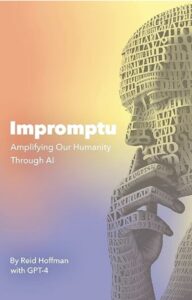Lake view

Killarney, sometimes known as “Ireland’s Lake District”.
Quote of the Day
”A page digested is better than a volume hurriedly read.”
- Thomas Macaulay
Well, up to a point, Lord Copper (as Evelyn Waugh might have said).
Musical alternative to the morning’s radio news
Sibelius | Impromptu for Strings Op. 5
Mesmerising. And fascinating to follow the score.
Long Read of the Day
Will the Humanities Survive Artificial Intelligence?
One of the things that really bothers me at the moment is the way Humanities teachers and scholars seem to be freaked out by LLMs and ‘AI’ generally.
Which is why I was exhilarated to find this fabulous New Yorker essay by D. Graham Burnett. It’s long, but worth it. Here’s how he sets it up:
Let me offer a dispatch from the impact zone. When I first asked a class of thirty Princeton undergraduates—spanning twelve majors—whether any had used A.I., not a single hand went up. Same with my graduate students. Even after some enthusiastic prodding (“Hey! I use these tools! They’re incredible! Let’s talk about this!”), I got nowhere.
It’s not that they’re dishonest; it’s that they’re paralyzed. As one quiet young woman explained after class, nearly every syllabus now includes a warning: Use ChatGPT or similar tools, and you’ll be reported to the academic deans. Nobody wants to risk it. Another student mentioned that a major A.I. site may even be blocked on the university network, though she was too nervous to test the rumor.
In one department on campus, a recently drafted anti-A.I. policy, read literally, would actually have barred faculty from giving assignments to students that centered on A.I. (It was ultimately revised.) Last year, when some distinguished alums and other worthies conducted an external review of the history department, a top recommendation was that we urgently address the looming A.I. disruptions to our teaching and research. This suggestion got a notably cool reception. But the idea that we can just keep going about our business won’t do, either.
On the contrary, staggering transformations are in full swing. And yet, on campus, we’re in a bizarre interlude: everyone seems intent on pretending that the most significant revolution in the world of thought in the past century isn’t happening. The approach appears to be: “We’ll just tell the kids they can’t use these tools and carry on as before.” This is, simply, madness. And it won’t hold for long. It’s time to talk about what all this means for university life, and for the humanities in particular…
It is. And we have to get past what Henry Farrell calls “the AI Fight Club” to use these tools as the ‘cultural technologies’ that they are.
So many books, so little time
Reid Hoffman was in Cambridge last week, and I went to an event in which he was the star guest and was intrigued by one of the books he’s written or co-authored over the last decade.

Screenshot
It’s a book he wrote in conjunction with GPT-4, so it’s a kind of ongoing conversation between human and machine. I’m half-way through, and am impressed. It’s an example of a creative partnership at work. Not quite Lennon and McCartney, but interesting nevertheless. We’ll see a lot more of this, and it was astute of Hoffman to spot it early.
This Blog is also available as an email three days a week. If you think that might suit you better, why not subscribe? One email on Mondays, Wednesdays and Fridays delivered to your inbox at 5am UK time. It’s free, and you can always unsubscribe if you conclude your inbox is full enough already!
